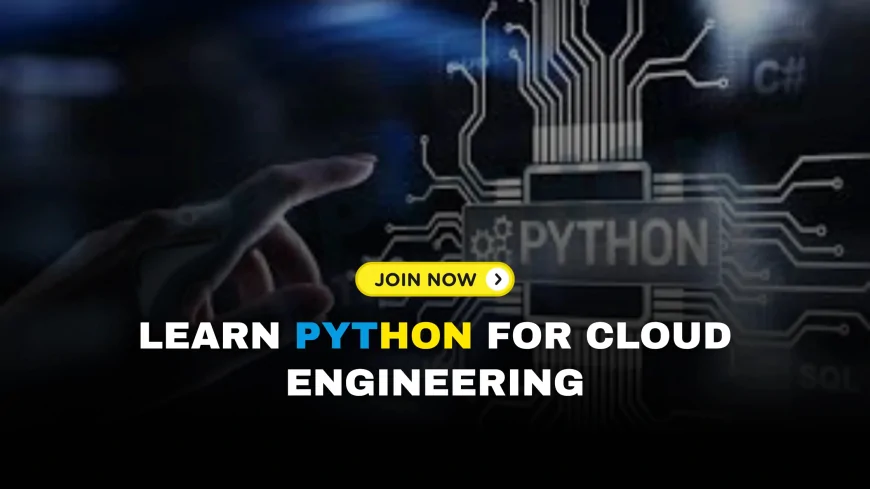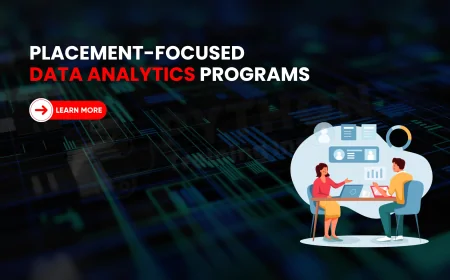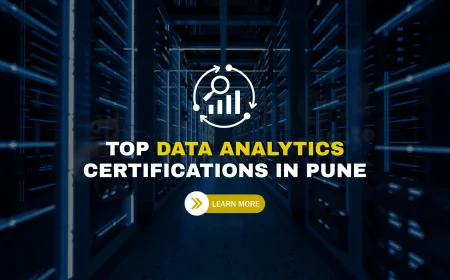Learn Python for Cloud Engineering Pune | Python Programming for Cloud Technology Careers in Pune
Accelerate your cloud engineering career in Pune with Python scripting for AWS, GCP, serverless, Docker & CI/CD. Instructor-led labs, real-world deployments, flexible batches & placement support.

Table of Contents
- Introduction
- Why Learn Python for Cloud Engineering
- Cloud Engineering Roles & Python
- Pune Training Landscape
- Spotlight: WebAsha Technologies
- How to Choose the Right Course
- FAQs
- Conclusion
Introduction
As cloud adoption rises, Python has become central to scripting, automation, cloud-native development, and DevOps. In Pune’s growing tech ecosystem, several training institutes now offer courses that blend Python with cloud platforms like AWS and GCP. This guide explores why Python is ideal for cloud engineering, training options—including WebAsha’s offerings—selection criteria, and answers to common questions.
Why Learn Python for Cloud Engineering
Python has become indispensable in cloud engineering and DevOps due to its ease of use and powerful automation capabilities. Its clean, human-readable syntax makes it simple to write scripts that manage infrastructure without the complexity of lower-level languages . With robust SDKs like boto3 for AWS and google-cloud-python for GCP, Python enables engineers to provision resources, perform deployments, and integrate CI/CD pipelines programmatically . Tools like Ansible and Kubernetes, which are foundational to infrastructure management, are native to Python—enabling seamless automation, configuration, and orchestration . Its cross-platform compatibility and vast ecosystem make writing infrastructure-as-code scripts and managing monitoring/logging tasks efficient and scalable . Ultimately, Python empowers cloud engineers to build, monitor, and deploy cloud infrastructure reliably, quickly, and with minimal overhead—making it a cornerstone skill for anyone in the cloud engineering domain.
Simplicity & Readability
Python’s clean, human-readable syntax allows cloud engineers to write and maintain automation scripts more efficiently—ideal for managing complex infrastructure with fewer errors .
Rich Cloud SDK & Libraries
Python offers first-class SDKs and libraries for all major cloud platforms:
-
boto3 for AWS
-
azure-sdk-for-python for Azure
-
google-cloud-python for GCP
These tools enable you to script provisioning, deployments, and cloud management without low-level API work.
Ideal for Automation & DevOps
Widely used in DevOps and automation workflows—Ansible, Fabric, and similar tools are built using Python—making it a key language for implementing CI/CD, infrastructure-as-code (IaC), and configuration management .
Serverless & Cloud-Native Support
Python is officially supported by serverless platforms like AWS Lambda and GCP Cloud Functions, enabling the creation of scalable, event-driven services with ease .
Scalable & Cross-Platform
Python is portable across AWS, Azure, GCP, and private clouds—helping you avoid vendor lock-in and write reusable scripts for multi-cloud environments .
Strong Ecosystem for AI/ML
For roles at the intersection of cloud and data, Python’s seamless integration with ML libraries (e.g., TensorFlow, PyTorch) enables cloud-based AI/ML pipelines and scalable training deployments .
Great for Rapid Prototyping
Python’s fast development cycles mean you can quickly prototype and deploy cloud services—a major advantage in fast-paced projects or DevOps workflows.
Insights from Practitioners
Here’s how cloud engineers weigh in—upvoted remarks from professionals highlight Python’s cloud relevance:
“Python is much easier to learn … great to create lambda, or any automation.”
“If I only had time… Python because you can IaC with it.”
In Summary
Python is essential for cloud engineering because it supports:
-
Automation (scripted infrastructure, DevOps)
-
Serverless Applications (Lambdas, Functions)
-
Scaling & Portability (multi-cloud strategy)
-
Cloud-native AI/ML (model deployment)
-
Rapid Scripting (CI/CD, testing)
-
Ecosystem Integration (Ansible, boto, Azure SDK)
Nearly every AWS, Azure, or GCP role expects fluency in Python for scripting and automation—whether you're deploying containers, managing IaC, or orchestrating workflows .
Key Cloud Engineering Roles Using Python
Python skills open doors to a range of specialized cloud roles:
- Cloud Automation Engineer: Infrastructure as Code using Terraform with Python plugins, AWS CDK, automation with boto3.
- DevOps Engineer: Python scripts for Jenkins pipelines, Docker image creation, testing automation, and release orchestration.
- Serverless Engineer: Building AWS Lambda/GCP Functions in Python for scalable event-triggered apps.
- SRE / Site Reliability Engineer: Monitoring, alerting, scripts for rolling updates and health-check automation.
- Cloud-Native Dev: Python-based microservices using Flask or FastAPI deployed on cloud containers.
Pune’s Python + Cloud Engineering Training Landscape
Here are key providers offering cloud-focused Python training in Pune:
- WebAsha Technologies: Offers Python modules within AWS/Azure and DevOps tracks, including cloud scripting, deployments, CI/CD best practices, automation labs, and real cloud projects :contentReference[oaicite:1]{index=1}.
Spotlight: WebAsha Tech’s Python for Cloud Engineering
WebAsha Technologies, Pune offers a well-structured cloud-engineering Python track integrated with their AWS/DevOps/MLOps programs. Highlights include:
- **Hands-On Labs:** Writing Python scripts to manage IAM, EC2, S3, RDS, Lambda, and Elastic Beanstalk, with credential setup and automation workflows :contentReference[oaicite:6]{index=6}.
- **Deployment Modules:** Python-based Docker container builds, Kubernetes config scripts, CI/CD pipelines that interface with AWS CodePipeline and Jenkins :contentReference[oaicite:7]{index=7}.
- **Real-World Projects:** Tasks like infrastructure provisioning via boto3, Lambda-driven ETL, serverless API design, and cloud log analysis demonstrations :contentReference[oaicite:8]{index=8}.
- **Trainers & Mentorship:** Sessions led by industry engineers with 8–12+ years working at IBM, RedHat, Airtel; include resume prep and mock interviews :contentReference[oaicite:9]{index=9}.
- **Support & Placement:** Flexible batches, 24x7 doubt resolution, recordings, and a strong placement portal placing over 1,500 students last year :contentReference[oaicite:10]{index=10}.
How to Choose the Right Python + Cloud Course
Define Your Learning Goals
Start by asking:
-
Do you want to automate cloud workflows?
-
Are you aiming to build serverless apps?
-
Do you need to manage CI/CD and containerized deployments?
Clarifying your goals—whether it’s automation, DevOps, serverless, or infrastructure-as-code (IaC)—will steer you to a course that matches your objectives.
Align Course with Your Skill Level
Select a course tailored to your level:
-
Beginner: Python basics + cloud fundamentals
-
Intermediate: SDK scripting, serverless functions, framework use
-
Advanced: IaC tools (Terraform/CDK), container orchestration, CI/CD pipelines
Tailored training ensures efficient learning and avoids unnecessary coverage.
Evaluate Course Content
A strong Python + Cloud course should include:
-
Python essentials (functions, classes, handling JSON/YAML)
-
SDK usage (boto3 for AWS, google-cloud-python)
-
Scripting for services like EC2, S3, IAM, Lambda
-
CI/CD pipelines, Docker, and container orchestration (e.g., Kubernetes)
Look for hands-on modules—not just theory.
Look for Hands-On Projects
Learning sticks when you build real projects:
-
Automate AWS/GCP resource creation via Python
-
Develop and deploy Lambda or GCP Cloud Functions
-
Create pipelines using Jenkins or AWS CodePipeline
Courses like Digital Cloud Training (boto3 scripting) and Reddit feedback support this approach.
Ensure Lab & Sandbox Access
Real cloud lab practice is vital—check if providers offer:
-
Sandbox/cloud credits, e.g., AWS Free Tier
-
Guided environments (e.g., Digital Cloud Training’s labs)
-
Platform-specific SDK exercise setups
Hands-on access is non-negotiable.
Instructor Expertise & Support
Strong courses feature:
-
Industry-experienced trainers, often cloud-certified engineers
-
Interactive support, including doubt-clearing and mentoring
-
Community interaction, forums, peer reviews
Certification & Placement Help
Look for:
-
Official certifications (e.g., AWS Cloud DevOps Engineer)
-
Resume review, mock interviews, and job placement support
This is crucial for transitioning into cloud engineering roles.
Flexibility & Format
-
Live, self-paced, or hybrid formats?
-
Accessibility of recordings, make-up sessions, and compatibility with your schedule
Choose what fits your personal and professional routines.
Budget, Duration & ROI
Compare:
-
Course duration: several weeks to months
-
Pricing range: typically ₹30k–₹80k (or $19.99/month for platforms like Digital Cloud Training)
-
Value: evaluate based on labs, mentorship, certifications, and placement success
Summary Table
| Factor | What to Look For |
|---|---|
| Goals | DevOps, automation, serverless, IaC |
| Skill Level | Beginner, intermediate, advanced |
| Content | Python fundamentals, SDKs, containers, CI/CD, cloud services |
| Projects | Realistic cloud automation, serverless functions, pipeline workflows |
| Labs | Real cloud sandbox or guided lab available |
| Instructors | Industry-certified with active support |
| Certification | Role-recognized, plus placement assistance |
| Flexibility | Live vs self-paced, recordings, weekend/evening options |
| Cost & ROI | Transparent pricing, EMI options, matched with project and career support |
Final Checklist Before You Enroll
-
-
Clarify exactly which cloud role you’re aiming for.
-
Review the syllabus to ensure alignment with your goals and skill level.
-
Ask about hands-on labs and project support.
-
Verify instructor experience and student support.
-
Inquire about certification alignment and job support.
-
Ensure timings fit your schedule.
-
Compare costs and value—you should get a fair return for your investment.
-
FAQs
1. Why is Python essential for cloud engineering?
Python enables automation, serverless development, and infrastructure scripting through SDK/CLI across major cloud platforms.
2. Do I need AWS or GCP knowledge first?
Begin with Python scripting fundamentals; cloud platform modules (AWS/GCP) are layered later in the course.
3. Are cloud credentials provided?
Yes—courses like WebAsha and Knowledge Academy offer sandbox environments or guided credential setups for labs.
4. Do these courses cover containerization?
Many include Docker scripting, Kubernetes YAML, and orchestrated deployments within CI/CD workflows.
5. Will I build serverless apps?
Yes—expect projects like AWS Lambda functions, Python-based ETL scripts, and scheduled/cloud-triggered tasks.
6. Is DevOps automation included?
Yes—trainings cover Python scripting for Jenkins/Python-based pipelines and CodePipeline integration.
7. What prerequisites are needed?
Python basics, Git familiarity, and basic knowledge of Linux or networking are recommended.
8. Is certification provided?
Yes—WebAsha and partners provide completion certificates; some align with AWS/GCP track certifications.
9. How long are these courses?
Typically range from 8–16 weeks, including lab sessions and projects.
10. Are there demo lectures?
Yes—most institutes allow trial classes or recorded previews before enrolling.
11. Do institutes offer placement help?
Yes—providers like WebAsha offer resume support, mock interviews, and hiring partner connections.
12. Can I upskill part-time?
Yes—batch options include evening and weekend slots, with recording access for flexibility.
13. Is cloud cost included?
Labs often use free-tier accounts; for larger experiments, budget may be notified but not charged.
14. Can I practice post-class?
Yes—recording access, cloud sandbox credentials, and community labs allow continued practice.
15. Does this support Linux admins?
Yes—cloud-engineering training overlaps with SysAdmin roles via scripting, automation, and serverless deployment.
16. Are group projects included?
Yes—expect collaborative assignments like infrastructure setups, CI/CD pipelines, and API containerization.
17. Who leads training?
Senior engineers with 8–12+ years in Python and cloud infrastructure roles in corporate environments.
18. Will this help certification exams?
Some courses include AWS Solution Architect or GCP Associate Cloud Engineer prep modules.
19. How do I evaluate ROI?
Track placement rates, hiring domains, project portfolios, and certification acceptance in job listings.
20. What’s the first step?
Reach out for syllabi, schedule a demo, and compare your background with the sample curriculum to decide.
Conclusion
Pune’s Python → cloud-engineering training options are expanding rapidly to keep pace with enterprise demand. Whether you’re focusing on AWS, GCP, serverless, DevOps, or container orchestration—Python serves as a powerful glue. WebAsha Technologies combines hands-on cloud labs, scripting tasks, live AWS deployments, DevOps pipelines, and strong career support, making it a compelling choice. As you evaluate programs, prioritize platforms, depth of practice, mentor strength, and placement success to ensure you gain both skills and opportunities.
What's Your Reaction?
 Like
0
Like
0
 Dislike
0
Dislike
0
 Love
0
Love
0
 Funny
0
Funny
0
 Angry
0
Angry
0
 Sad
0
Sad
0
 Wow
0
Wow
0















